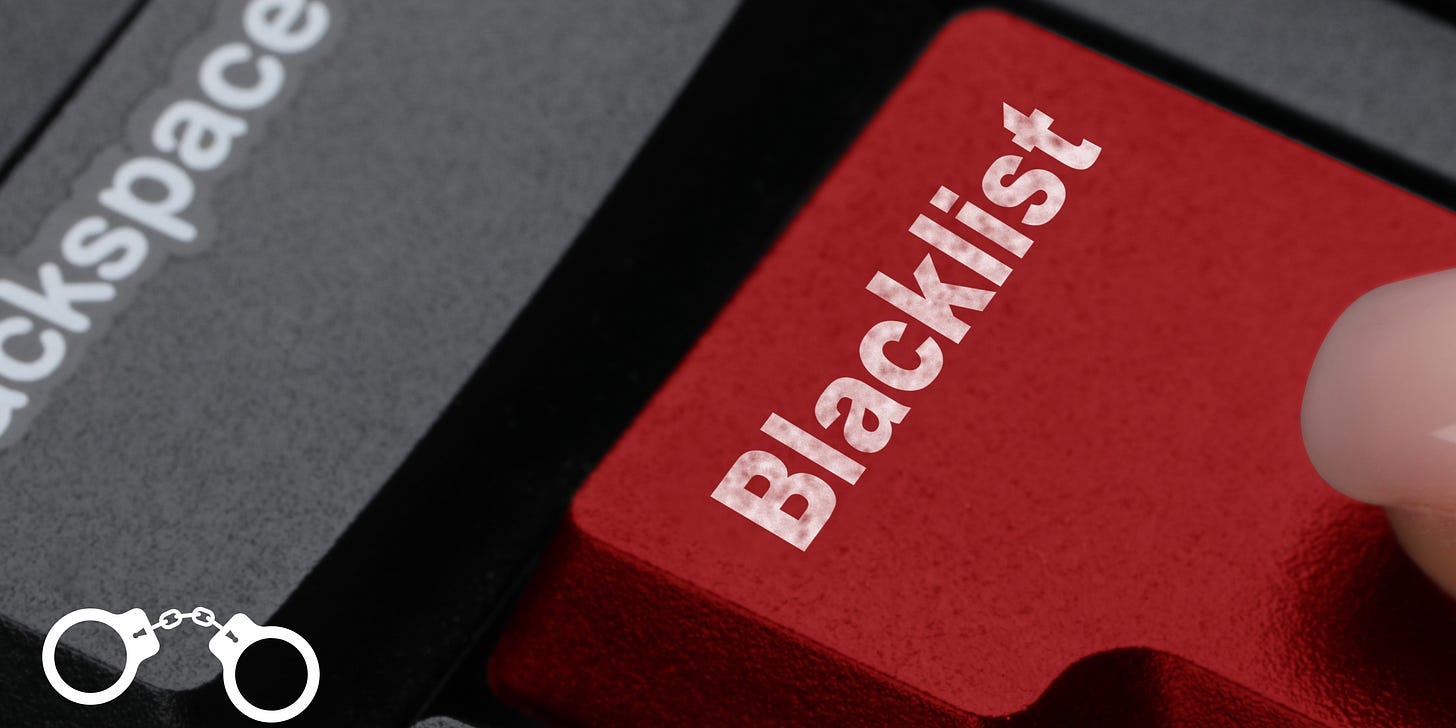Law Enforcement Blacklists: When Speaking Up Silences Agents and Officers
There's an unspoken rule that makes or breaks careers: the unofficial blacklist. This invisible yet potent force can derail the promising futures of agents and officers, not because of their performance or integrity but often due to their willingness to stand up against workplace injustice. Today, we delve into this shadowy practice plaguing our law enforcement agencies, examining its impact on individual agents and officers and the broader implications for justice and accountability within these institutions.
The Whisper Network
The law enforcement blacklist isn't a tangible document or an official policy. Instead, it's a "word of mouth" phenomenon, a network of whispers and nods that can effectively end an agent's or officer's career progression or ability to transfer between agencies. What lands an agent or officer on this list? Often, it's not misconduct or incompetence but rather the act of filing an Equal Employment Opportunity (EEO) complaint or raising allegations against current or former employers.
The Price of Speaking Out
Consider the case of a friend - a dedicated law enforcement agent who had repeatedly proven their mettle. This agent had worked on some of the most grievous cases, specializing in crimes against children, and had even received recognition from senior leaders for their outstanding work. Their record was impeccable, their commitment unwavering. Yet, this exemplary agent faced a constant bombardment of sexual advances from a supervisor.
Doing what we would hope any of us would do in such a situation, they spoke up. They filed an Equal Employment Opportunity (EEO) complaint, and after a thorough investigation, their claims were substantiated. Justice was served, right?
Wrong. Despite winning their case, the agent found their career trajectory suddenly and inexplicably stalled. They were branded a "problem child" to be avoided. Promotions became elusive, and even lateral moves to other agencies within the organization seemed impossible. The victory in their EEO case turned out to be hollow, with the cost to their career far outweighing the benefits of speaking up. An agent who had once been praised for tackling the most challenging cases was now treated as a liability, all for having the courage to stand up against harassment.
The Chilling Effect
This unofficial blacklisting creates a chilling effect within law enforcement agencies. Agents and officers witnessing misconduct or experiencing harassment face an impossible choice: speak up and risk their careers, or stay silent and allow the problems to persist. But the damage goes even deeper. The rumor mill that fuels these blacklists is a two-way street, affecting both those who speak out and those who observe the consequences.
The message becomes crystal clear for those already working within the agency or department: step forward with concerns, and your career might be sidetracked or even over. This pervasive fear doesn't just silence potential whistleblowers; it paralyzes the entire organization. The blacklisting does nothing to help an agency or department. Instead, it fosters a culture of silence, mistrust, and complicity that undermines the principles of justice and integrity that law enforcement is meant to uphold.
This dynamic not only harms individual agents and officers but also erodes the integrity and effectiveness of our law enforcement institutions as a whole. When good people stay silent out of fear, problems fester, misconduct goes unchecked, and the agency's ability to serve and protect is severely compromised. The ripple effects extend far beyond the department walls, impacting community relations, public trust, and ultimately, the safety of the citizens they're sworn to protect.
The Call to Leadership
Ultimately, the responsibility to break this destructive cycle falls squarely on the shoulders of management and agency leaders. They must find the courage to make tough, potentially unpopular decisions that challenge the status quo. Derailing someone's career based on hearsay and rumors isn't just a personal tragedy for the individual involved; it has far-reaching consequences that ripple throughout the entire organization. When agents and officers witness a colleague's career crumble due to whispers and innuendo, it erodes trust, morale, and the very foundations of the agency's integrity. This dysfunction becomes a cancer, eating away at the effectiveness and credibility of law enforcement as a whole. Leaders must recognize that by allowing these unofficial blacklists to persist, they're not just failing individual agents or officers – they're failing the entire institution they've sworn to lead and protect. Breaking this cycle requires more than just policy changes; it demands a fundamental shift in how leadership approaches fairness, accountability, and the true meaning of justice within their ranks. The future of effective, trusted law enforcement depends on leaders willing to stand up against this insidious practice, even when it means making difficult and uncomfortable decisions.
Endstate
The unofficial blacklist in law enforcement is more than just a career killer for individual agents and officers. It's a cancer eating away at the foundations of justice and accountability within our police forces and federal agencies. By addressing this issue head-on, we can create a law enforcement culture that truly protects and serves - not just the public, but also the brave agents and officers who dedicate their lives to upholding the law. Only then can we ensure that those who speak truth to power are rewarded, not silenced.





